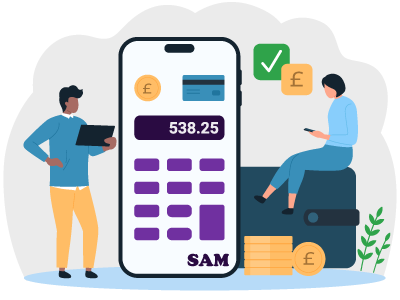Discount Market Sale Scheme: Buying and Selling
Discount Market Sale (DMS), also known as council shared equity, is a scheme that helps people buy a new home at a discounted price.
It can be a great way to get on the property ladder, but the process has some unique legal and financial aspects you need to understand. These include:
- A restriction on the property's title that ensures the discount is passed on forever.
- Specific eligibility criteria that can vary by local council.
- The fact that not all mortgage lenders are willing to lend on these properties.
How the Discount Market Sale Scheme works
Discount Market Sale is a scheme that helps people buy a new-build or existing property at a discounted price from a local council or housing association.
The scheme aims to keep homes affordable for local people who can't afford to buy on the open market. The discount is typically between 20% and 50% of the property's open-market value.
Unlike Shared Ownership, a DMS property means you own 100% of the home from day one. You don't pay rent on the discounted portion. Instead, the discount is secured by a legal restriction on the property's Land Registry Title.
This restriction is often part of a Section 106 Agreement and ensures the discount is passed on to every future buyer in perpetuity.
Eligibility
Because local authorities run the scheme, the exact rules can vary. However, to qualify, you must generally meet the following criteria:
- Income Cap: Your household income must not exceed a certain limit set by the local council.
- Local Connection: You must have a strong connection to the area, such as living or working in the local council's borough for a set period. Some schemes also prioritise key workers or people with family in the area.
- Home Ownership: You must not own any other property, either in the UK or abroad. You may be required to sell your current home before buying a DMS property.
- Fixed, competitive legal fees with no hidden costs.
- Expert conveyancing solicitors with proven local knowledge.
- No Sale, No Fee protection for your transaction. Terms apply.
- On 99% of mortgage lender panels.
- Fast completions.
- We can solve any property challenge.
The Discount Market Sale buying process
The process of buying a DMS property is similar to a standard purchase, but with some extra steps. A solicitor with experience in these schemes is essential because of the unique legal aspects, particularly the Land Registry restriction.
- 1
Find a Property and Get Nominated
You can find DMS properties for sale on your local council's website or through a specialist affordable housing portal. Developers and estate agents may also list them.
The properties are typically sold to a list of nominated buyers who meet the eligibility criteria. You will need to submit an application form to the council or developer to get this nomination.
- 2
Get Your Finances in Order
Before you make an offer, you must speak to an independent mortgage broker who understands DMS schemes. They can help you get a specialist DMS Mortgageagreement in principle from a lender that supports the scheme. This is a crucial step, as not all lenders will lend on these properties.
- 3
Instruct a Solicitor
Once you've had your offer accepted, you need to instruct a solicitor to handle the legal work. They will manage the conveyancing process, which is where the legal transfer of the property happens.
It is essential to use a firm with experience in DMS, as they will need to deal with the unique legal restrictions.
- 4
Conveyancing and Legal Work
Your solicitor will begin the conveyancing process. This includes:
- Property Searches: Conducting local authority, water, and environmental searches on the property.
- Checking the Title: They will check the Land Registry title for the legal restriction and ensure the property is being sold at the correct discounted price as part of a Section 106 Agreement.
- Liaising with the Council: They will deal with the local council or housing association to get all the necessary legal documents and permissions to complete the sale.
- Managing the Mortgage: They will work with your lender to manage the mortgage funds and ensure the legal charge is placed correctly on the property.
- 5
Exchange and Completion
Once all legal and financial checks are complete, your solicitor will exchange contracts and set a completion date. This is the day you officially become the owner of the property.

Call us at 0333 344 3234 or request a callback/email to answer your queries about our Land Registry application services. SAM's UK-based team will explain which of our solicitor services are required to make changes to the title.
There's no obligation to instruct. We'll make sure you understand your options and provide a free, fixed-fee quote for our best-value service to meet your needs. No robots, no call centres. Property challenges solved.
Living in and selling a DMS property
Once you own a DMS property, it is your home. You own 100% of it, so you are responsible for all maintenance and repairs.
Generally, you can make alterations and improvements to the property, just like a standard homeowner, but you should always check the specific rules set out in your council's legal agreement.
How do you sell your DMS property?
Selling a DMS home is a legal process similar to a normal sale, but with extra steps because the discount must be passed on to the next eligible buyer. You should instruct a solicitor with experience in these schemes from the outset.
- 1
Notify the Council
You must first inform your local council in writing of your intention to sell. This is often done by submitting an Availability Notice or similar form. The council will confirm the process you need to follow and the specific rules for your property.
- 2
Instruct a Solicitor and Estate Agent
You will need a solicitor to handle the legal work and an estate agent to market the property. It's essential that the estate agent knows the property is a DMS home and that the buyer must meet the eligibility criteria.
- 3
Obtain a Valuation
To determine the new sale price, you must get a professional valuation of the property’s full open market value.
The local council will usually require a RICS-registered surveyor, and the report must be addressed to the council so they can rely on its contents. You are responsible for paying for this report.
- 4
Set the Price and Market the Property
The council will confirm the maximum sale price by applying the original discount percentage to the new valuation. For example, if you bought it with a 20% discount, you must sell it at a 20% discount on the new, higher market value.
The property must then be sold at or below this new, discounted price to an eligible buyer who has been approved by the council.
- 5
Conveyancing and Legal Work
Once a buyer has been found and approved, your solicitor will handle the conveyancing. This process is like a normal sale but involves extra legal documents from the council to ensure the new buyer is eligible and that the legal restriction on the title is transferred correctly.
When buying with a mortgage, your lender will appoint their own surveyor for a mortgage valuation.
This is done for the lender, but the borrower usually pays for it. An independent valuation report will allow you to compare results and give you an insight into the condition of the property from a buyer's perspective.
- Local, MRICS, and FRICS-accredited surveyors.
- Fixed, competitive fees.
- Availability from 21/02/2026(i).
- We can solve any property challenge.
DMS vs other schemes: A comparison
There are many ways to get onto the property ladder, and it's easy to get confused by the different schemes. Discount Market Sale, Shared Ownership, and New Build Boost are three options that help buyers with smaller deposits. While they all aim to help you buy a home, they work in very different ways.
The key takeaway is that DMS and New Build Boost give you 100% ownership from day one, while Shared Ownership is a part-buy, part-rent model.
Feature | Discount Market Sale (DMS) | Shared Ownership | New Build Boost |
|---|---|---|---|
Feature Ownership | Discount Market Sale (DMS) You own 100% of the property. | Shared Ownership You buy a share (e.g. 25% to 75%) and rent the rest. | New Build Boost You own 100% of the property. |
Feature Ongoing Payments | Discount Market Sale (DMS) Mortgage, service charge (if applicable). No rent. | Shared Ownership Mortgage, service charge, and rent on the share you don't own. | New Build Boost Mortgage, service charge. No rent. |
Feature Availability | Discount Market Sale (DMS) Varies by local council. Limited to specific regions. | Shared Ownership Nationally available through housing associations. | New Build Boost Limited to homes from specific developers. |
Feature Future Value | Discount Market Sale (DMS) Always sold at the same percentage discount. | Shared Ownership You can buy more shares as the property value increases. | New Build Boost The boost value adjusts with the property's value after 5 years, with a cap. |
Feature Selling | Discount Market Sale (DMS) Must be sold to another eligible buyer at the same percentage amount. | Shared Ownership The housing association has the right to market it first. | New Build Boost You can sell on the open market and repay the equity loan at the same time. |
Andrew started his career in 2000 working within conveyancing solicitor firms and grew hands-on knowledge of a wide variety of conveyancing challenges and solutions. After helping in excess of 50,000 clients in his career, he uses all this experience within his article writing for SAM, mainstream media and his self published book How to Buy a House Without Killing Anyone.
Caragh is an excellent writer and copy editor of books, news articles and editorials. She has written extensively for SAM for a variety of conveyancing, survey, property law and mortgage-related articles.











